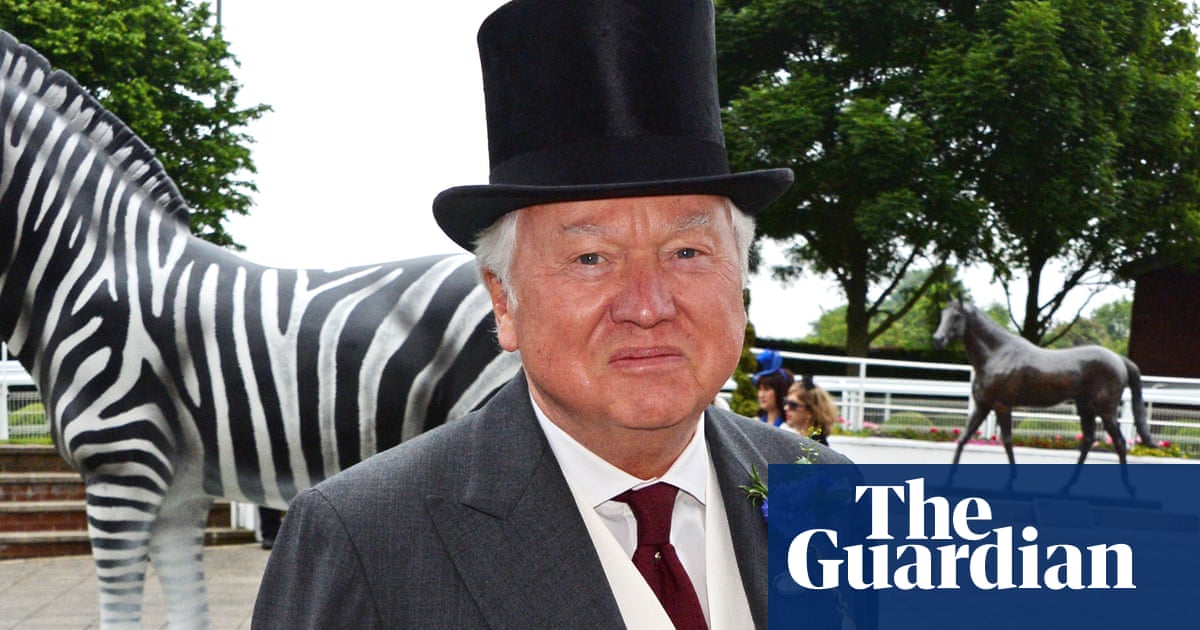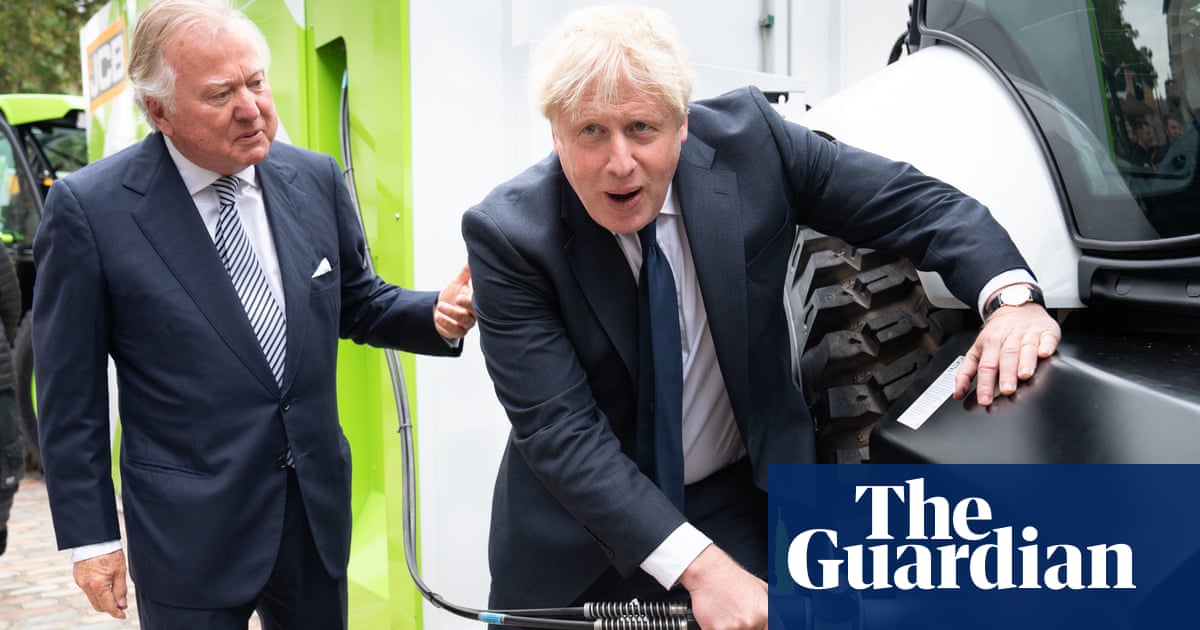
Even by the party’s ever more debased rhetorical standards, the Tory leadership has surpassed itself with attacks on Labour for accepting donations from Dale Vince, who – unlike the Labour party – also supports Just Stop Oil.
Rishi Sunak: “These kind of eco-zealots at Just Stop Oil are writing Keir Starmer’s energy policy.”
Suella Braverman (of Starmer): “He had the cheek to claim Labour is no longer the party of protest this year – the reality is he’s in bed with their donors.”
And maddest, naturally, of all, Lee Anderson: “Every day that Labour takes money from Dale Vince another ambulance is delayed, a hospital appointment is missed, a grieving relative can’t get to a funeral, which proves this is a slap in the face to hardworking Brits trying to get on with their lives.”
Last week, after Starmer described Just Stop Oil disruptors as “contemptible”, Conservatives resumed an attack line whose impact depends on almost complete ignorance of, or indifference to, the origins of its own donations.
Recently, courtesy of high net worth benefactors keen to secure the less fortunate another five years of struggle, sewage, waiting lists and economic grief, these have soared. An Egyptian-born billionaire, Mohamed Mansour, ex-minister for the military autocrat Hosni Mubarak, has donated a record-breaking £5m. He now distributes vehicles and is a Conservative party treasurer. In these circumstances it seems a little careless of Matt Vickers, the Conservatives’ deputy chairman, to repeat – adding “Slippery Starmer”, an insult coined by the missing moralist Dan Wootton – the scripted accusation: “Labour are so caught up with Just Stop Oil they have these eco-zealots writing their energy surrender plan for them.”
Sticklers for consistency note that Vickers himself accepted a £5,000 donation from a contributor to party funding, IX Wireless, a company scattering gifts among Conservative MPs and also fined for carrying out unauthorised work. Plainly, Vickers did not personally carry out this work, but, by his own colleagues’ logic, taking IX Wireless’s money puts him “in bed with” and simultaneously accepting guidance from, a company so unpopular for suddenly putting up hideous phone masts that affected residents have been petitioning and demonstrating for it to stop. The leader of Bolton council said IX carried out work with the “minimum notice possible”. In Cheadle, Greater Manchester, it was ordered to remove a 60ft mast erected without permission.
Still, you could see all this concern for donor hygiene as an ethical fresh start. Could Tory smears about Labour’s funding, however perverse in this case, mean that the party finally, after years of shunning reform, cares where its own money comes from? Has it conceded that the Electoral Commission might be right in advocating due diligence: a “know your donor” approach, similar to anti-money laundering requirements in the financial sector? Might it even conclude, like some wiser democracies, that a cap on donations (as proposed by the committee on standards in public life) would reduce the impression that political influence is a good reserved for the rich? For Anderson, spokesman for hardworking Brits, every day this slap in the face is enacted – by his own party! – must be near-unendurable.
Certainly, minus any reforms, raging against Vince could work least well for the party whose donor free-for-all has featured figures being investigated for money laundering, polluters, Slapps (strategic lawsuits against public participation) specialists, disgraced party members and financiers fined by regulators, climate sceptics, misogynists, tax avoiders, individuals with links to Russia, names from the Pandora papers.
The list of Tory donors includes individuals so strikingly greedy and unpleasant that you can understand less compromised figures opting to hide behind obscure company names or the dodges called “unincorporated associations”, such as one (the United and Cecil Club) that regularly donates to local MPs.
Donations pouring in post Liz Truss and Boris Johnson testify to the indifference to political competence among those evidently proficient (given docile governments) at their own trades: property, hedge funds, financial speculation, fossil fuels, wealth management, private equity, private health care. Shirley Conran’s is the only creative name I noticed, if you don’t count the hairdresser John Frieda and Nicholas Coleridge, ex-Condé Nast, knighted last year. In fairness to Sir Nicholas, his donations began long before the Byline Times calculated, in 2021, what must have been encouraging for top donors: that a quarter received honours or peerages.
But the Vince obsession maybe signals a consciousness of, if nothing else, appearances. Since Conservatives think Labour should return Vince donations because of other activities that Labour finds “contemptible”, they will want to do the same with money from Crispin Odey, the hedge fund manager now excluded from the company he founded, after allegations of serious sexual misconduct across 25 years. To follow Tory reasoning on Vince, Odey must, as a major donor, have been “in bed” with the politicians.
The same applies to money given by a company owned by Michelle Mone’s husband, Doug Barrowman, after which the couple was lucky enough to secure, via another company, PPE contracts worth £203m. Ideally, a huge gift from the “person of interest” in an international money-laundering investigation should go back, ditto the fortunes donated by an Italian-born industrialist who wrote that London was “worse than any African metropolis”.
Dismaying as it is to find the Tory leadership characterising a party’s relations with big donors as both intimate and subservient, it might reasonably have been assumed after the Times revealed an “advisory board” for Conservative super-donors. It included three billionaires and six who appeared on the Sunday Times’s Rich List. James Cleverly insisted, with only the board’s No 10 gatherings and access to prime ministers indicating otherwise, that this was nothing untoward: “Conservative party policy, unlike Labour party policy, has never been dictated by our political donors.”
Fair enough. In a harmonious party-magnate relationship, one committed to a future of shared beds, nothing explicit needs to be said.
Catherine Bennett is an Observer columnist












